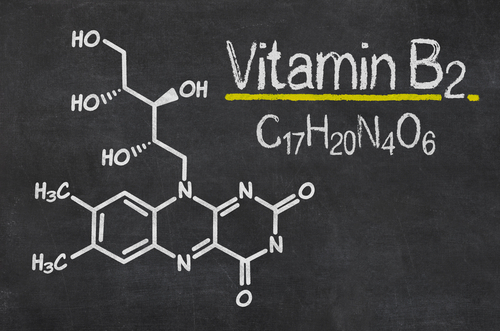
Jump to
Short answer
Riboflavin is not bad for you. In fact, it’s an essential B vitamin that is required for the growth, development and normal function of our skin, blood cells, digestive lining and more.
Long answer
Riboflavin is a B-complex vitamin that enables the body to perform vital physiological functions. It helps you create energy by converting carbohydrates into glucose, and helping to metabolize fats and protein. Additionally, B vitamins are crucial for healthy tissue: your liver cells, digestive lining, skin, hair, and eyes.
Riboflavin is also a powerful antioxidant, which aids in the fight against harmful free radicals. Free radicals are damaging to your cells, and that destruction contributes to a number of aging and serious health conditions. Because of its antioxidant properties, riboflavin has been effectively used to treat cataracts, migraine headaches, and hyperhomocysteinemia.
So how can you ensure you’re getting enough riboflavin? Watch what you eat. Because like all B vitamins, riboflavin is water soluble... which means your body cannot store it. For this reason, you have to get enough of it in your daily diet. Fortunately, this is easy to do because it occurs naturally in so many foods. Riboflavin is found in leafy vegetables, kidneys, livers, legumes, mushrooms and dairy products like milk, cheese, and eggs. Additionally, many breakfast cereals and grains are fortified with vitamin B.
So what happens if you don’t get enough riboflavin? Severe riboflavin deficiency results in stomatitis, which causes painful swelling and chapping of the tongue, throat, lips and skin around the mouth. It also makes your eyes itchy and bloodshot, and they become incredibly sensitive to light. Most severely, riboflavin deficiency interferes with your body’s ability to absorb iron, which can result in anemia.
Fortunately, riboflavin deficiency is more common in third world countries than it is here in the United States. But it can happen, and the elderly are at a particularly higher risk.
If you’re not getting enough riboflavin in your diet, there are over-the-counter supplements that you can take. However, those do carry side effects of their own. In some cases, these supplements may cause your urine to change to a yellow-orange color. This does not indicate a serious problem, it is just an effect of how the vitamin is absorbed by the body. If you have to take riboflavin supplements in high dosages, you run the risk of more serious side effects, including diarrhea and increase in the frequency of urination.
Even though riboflavin is an essential nutrient, you should still talk to your doctor before starting a B-vitamin regimen. Certain drying or depression medications may react with riboflavin supplements, either decreasing or increasing how much is absorbed by your body.
Possible short-term side effects
- yellow-orange urine
- diarrhea
- increase in frequency of urination
- interaction with certain drying/depression medications
Commonly found in

Benefits
- helps body create energy
- improves skin, eye, liver, digestive health
- fights free radicals
- treats migraines, cataracts, and hyperhomocysteinemia
 Approved by
Approved by 














